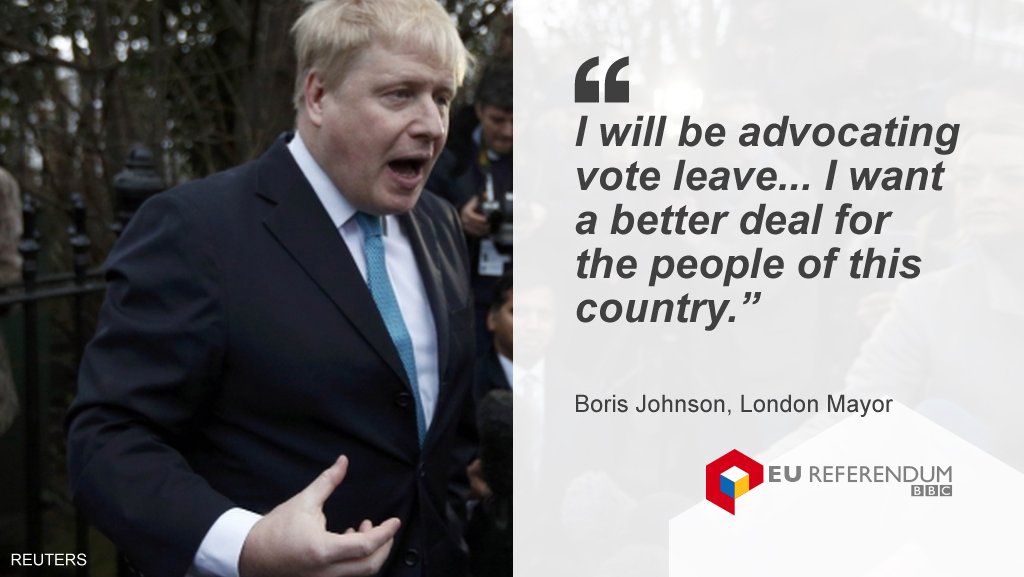You
have let down the people of Wales – frankly not suitable to be a First
Minister!
Gone
against your Prime Minister and the majority of your party’s Welsh MPs and AMs
Now in the same camp as Farage and Galloway!!
Now in the same camp as Farage and Galloway!!

Like it or not Andrew Davies has thrown his party in Wales into a whirlpool and it could be a disaster for the Welsh Tories Assembly elections campaign. True that the In – Out EU Referendum is some six weeks after the Welsh Senedd elections but many issues will inevitably overlap. Here’s a few – prospects for growth and jobs, infrastructure projects and restructuring the former industrial communities, training and investment, agriculture, tourism, rural services and the environment.
David Cameron says that
‘’EU funds had made a big difference" in many parts of
Wales.
Then his Secretary of State Stephen Crabb says that:
‘on a balance of costs and benefits, risks and
opportunities, Britain and Wales are actually better off staying part of a
reforming European Union."
I completely agree
with Kirsty Williams when she says that Andrew Davies’s decision is:
Too often
the people of Wales don’t always realise how the EU plays a significant part in our everyday lives - it makes a
significant contribution to the nation’s well-being.
The
Single Market is the largest market for Welsh exports – in 2014 alone exports
of goods from Wales to other EU Member States were worth nearly £5.8bn. In
fact, recent research shows 200,000 jobs in Wales depend on access to the
Single Market.
It
is also a major driver of inward investment. As of 2015, there are over 500
enterprises from other EU countries with operations in Wales, employing over
55,000 people.
Wales
has benefited from billions of pounds of EU funds over the years. In this year
alone, we have invested £425 million of EU Structural Funds to support our
economy and labour market.
Between 2007 and 2013 Wales has benefited from the investment of over £1.9bn of EU Structural Funds in 290 projects, representing £3.7bn of total project investment (including match funding by the Welsh Government).
This investment has helped
EU projects to deliver important benefits for people, businesses, the
environment, and communities during 2014, supporting some 190,800 people to
gain qualifications and over 62,800 into work, and creating some 30,600 jobs
and over 10,400 enterprises
Already it is known that
over the next 6 years a further £2 billion from the Structural Funds programmes
have been approved by the European Commission.
Another
area where Wales benefits from the EU is in scientific research, innovation and
technology development which is essential for economic growth and creating high
quality jobs.
Then there is agriculture, tourism and the rural economy. Leaving the EU will undoubtedly have a devastating effect on the nation’s farmers and hence the rural economy. At present on average farmers rely on the EU programme of support for some 35-50% of their gross incomes. The sum involved is over £200m a year. So without question it would be a bleak future indeed outside the EU and it is estimated for instance that only some 10-15% of farmers could survive without the current levels of support.
Some 58,000 people are engaged and employed directly
in the farming and agricultural industry. When the food processing and
agri-food sector are taken into account as well the number of people involved
reaches around 230,000 ( 18% of the workforce). It is estimated all this is
worth around £6billion annually to the Welsh economy.
Other rural development policies and initiatives
being promoted by the European Union does contribute effectively to supporting
the rural economy, communities, heritage and landscape and the Rural
Development Plans programme also makes an invaluable contribution. This funding not only supports the
agricultural industry but also services such as tourism and other rural
services.
Of course should Andrew Davies and UKIP have their
way and Britain did leave the European Union there is little question that
rural businesses would find it more difficult to survive. Currently some £4.0bn
is received in subsidy payments and the best guess that has been made is that a
British Government operating on its own outside the EU would only be able to
replace some £1.0bn of that. So leaving the EU would have serious consequences
for farming.
As I said Andrew Davies has made a massive
miss-judgement and without question has put his own personal prejudices first and ignoring the
consequences for the Wales and its people.



